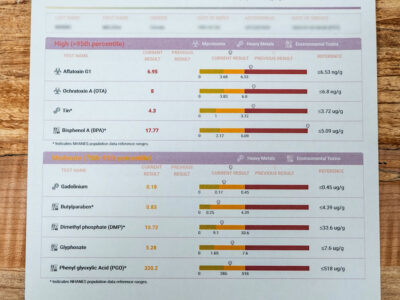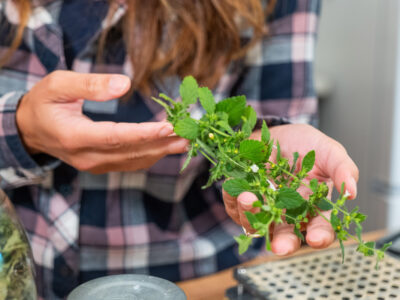When most of us think about parasites, we picture something out of a third-world documentary, not something quietly impacting our day-to-day health. But in my recent conversation with Dr. Torrie Thompson, a functional medicine doctor and founder of Meraki Wellness, I learned just how common they are, how often they’re overlooked and how to get rid of parasites in your body.

Today, I want to share what I learned, how this could be affecting you (even if you’re not showing obvious symptoms), and what we can do to naturally support our bodies.
Yes, You Probably Have Parasites (Why That Matters)
Here’s the truth: most people, especially in the Western world, have some level of parasitic load in their bodies. That doesn’t mean you’re sick or dirty, it just means you’re human.
Dr. Torrie explained that parasites are more common than we realize because they’re part of the natural ecosystem of our bodies. The problem isn’t necessarily having them, it’s when they grow unchecked due to a weakened immune system, poor gut health, or toxic overload.
Signs You May Have a Parasite Issue
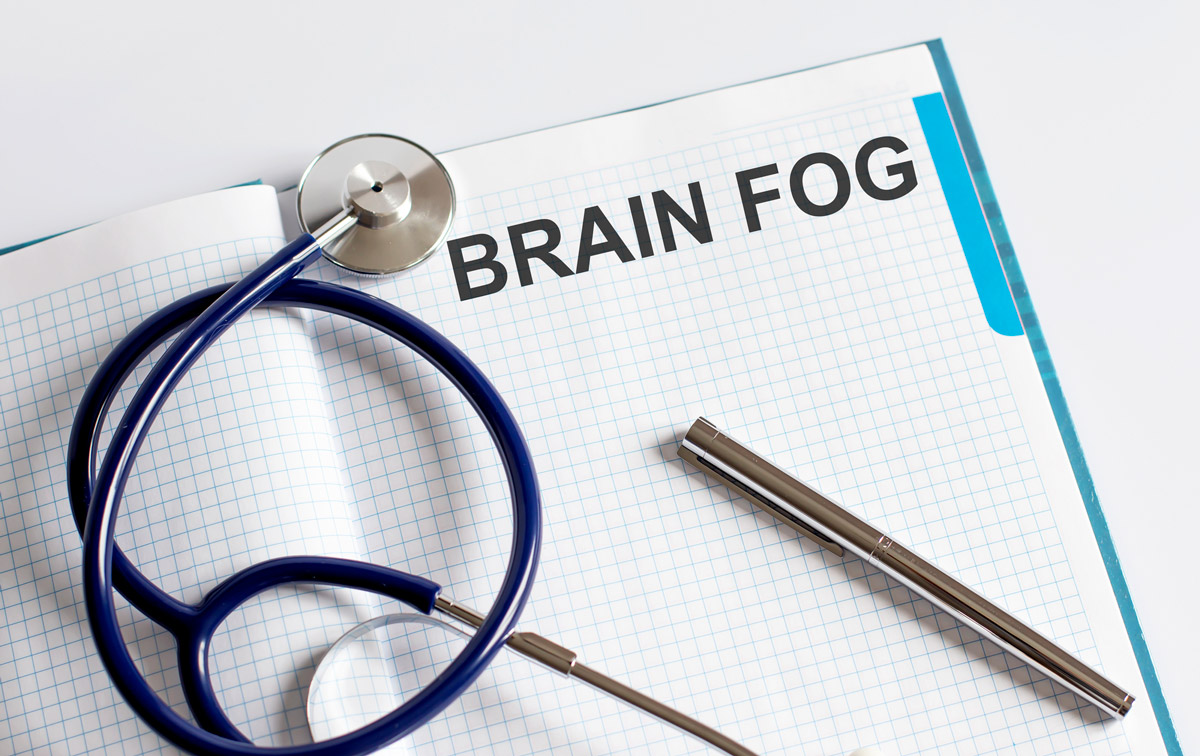
You might not see a worm in your stool to know something’s off (though that can happen!). Dr. Torrie walked us through some of the most common symptoms of parasitic imbalance:
- Unexplained bloating or gas
- Food sensitivities
- Skin issues like eczema, rashes, bruising easily, etc.
- Brain fog and fatigue
- Trouble sleeping (especially waking between 1–3 AM) and/or clenching your jaw while sleeping
- Sugar cravings
- Itchy bottom or scalp
- Mood swings or anxiety
If any of those sound familiar, it might be time to take a deeper look, not just treat symptoms.
How Do You Get Parasites?

You don’t have to travel overseas to get exposed. Here are common (and surprising) sources for picking up parasites:
- Undercooked meat – Especially pork or fish – hello sushi! Dr. Torrie keeps binders in her car and takes them right after eating sushi to help.
- Unwashed fruits and raw vegetables – This isn’t meant to make you fear them, just that it’s a reality of eating raw foods!
- Contaminated water – Think lakes, ponds and even spring water!
- Pets and livestock – If you have pets or livestock, you’re more exposed to parasites. Be sure your animals are getting proper treatments regularly, too.
- Walking barefoot outdoors – Parasites live in the soil, and while walking barefoot is incredibly beneficial for grounding purposes, it also can expose us to parasites.
- Gardening with bare hands – The same premise as gardening without gloves (which I LOVE), or little kids playing in the dirt then biting their nails. Just be sure to wash hands thoroughly!
Even healthy homesteaders like us can be exposed, especially if we’re out in the garden, tending animals, or eating from our land.
Natural Remedies Made Simple

Start your home apothecary with confidence—even if you’re brand new. Learn how to choose the right herbs for your body using the simple principles of herbal energetics.
Discover how warming, cooling, drying, and moistening herbs affect your body—so you can stop guessing and start making remedies that actually work.
Can You Test for Parasites?
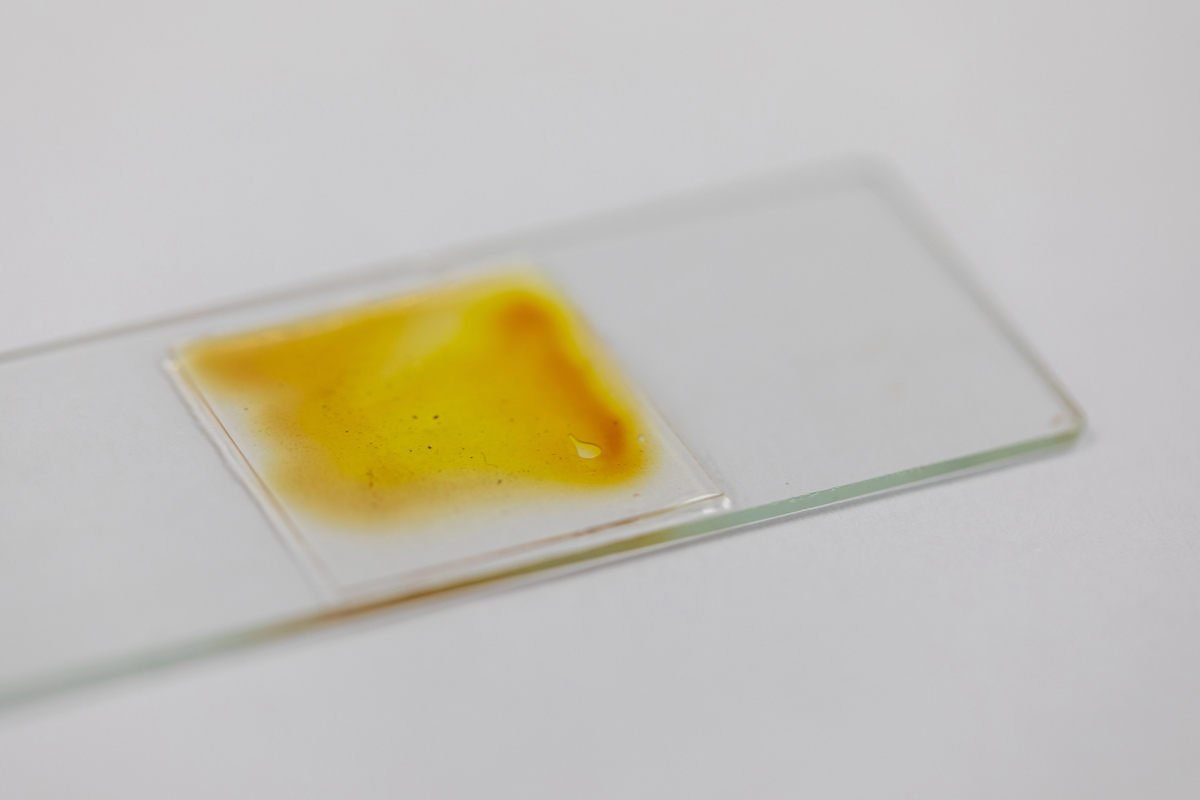
Yes! If you’re concerned about a specific parasite, Dr. Torrie recommends using comprehensive stool testing or GI-mapping with a qualified practitioner.
Unfortunately, traditional stool tests often miss parasites because they don’t capture the full picture. Functional labs are better at detecting the DNA of parasites, yeasts, and harmful bacteria.
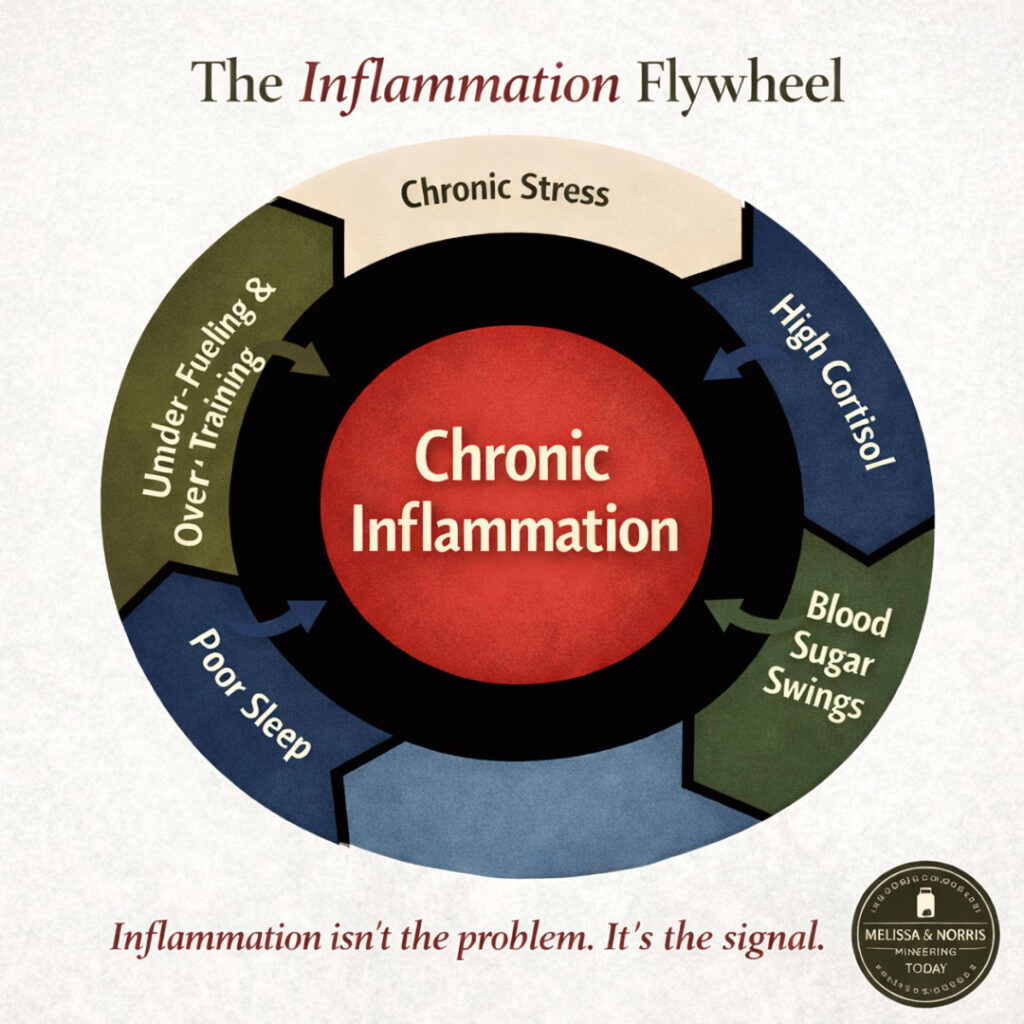
The Hidden Cycle Keeping You Inflamed
If you’ve been feeling puffy, tired, achy, or wired-but-tired, this two-page guide will help you understand what may be happening behind the scenes — even if you’re eating “healthy.”
Download the Inflammation Flywheel Guide and learn:
- Where to start so you don’t feel overwhelmed
- The 5 most common drivers that keep inflammation switched on
- Why blood sugar swings, stress, and poor sleep feed each other
Natural Ways to Support Your Body Against Parasites
We spent a lot of time diving into what you can do naturally to help your body detox parasites without overloading your system.
Here are Dr. Torrie’s three go-to strategies: Opening detox pathways, using natural anti-parasitic herbs and utilizing binders. You can read more about each of these below.
1. Open Your Detox Pathways First
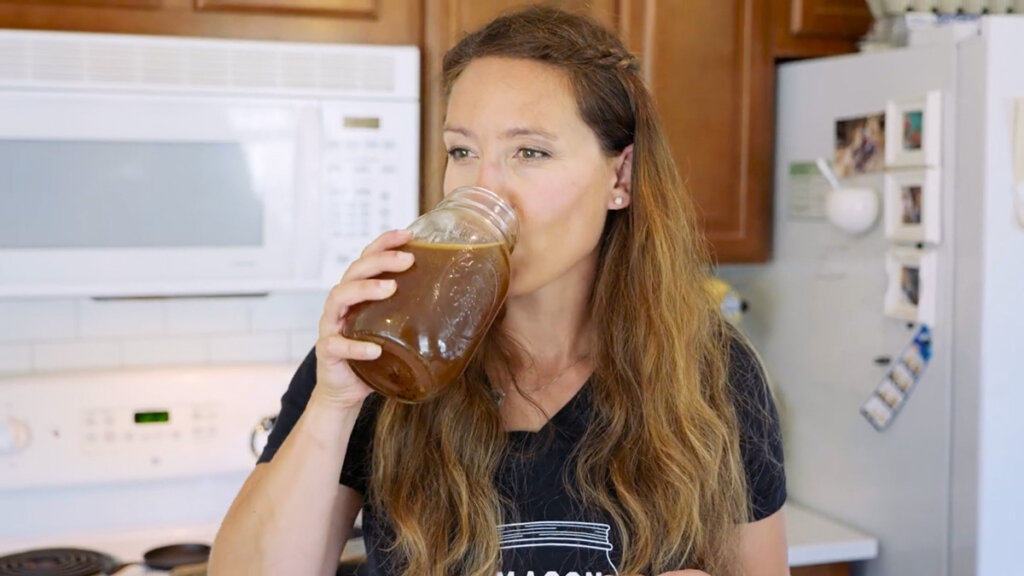
Before doing a parasite cleanse, you must make sure your body is ready. That means:
- Supporting liver health (think bitter herbs, milk thistle, dandelion tea).
- Hydration with clean water and minerals (I love my homemade switchel for this!).
- Daily bowel movements (at least one per day).
- Sweating regularly (sauna, exercise, or detox baths).
2. Use Natural Anti-Parasitics

Once your body is ready, herbs can be very powerful and Dr. Torrie recommends using herbal blends to treat with multiple remedies.
- Black walnut hull – The most common anti-parasitic herb. The downside is if you have a nut allergy, you need to avoid this.
- Wormwood – Wormwood contains a compound called thujone which is thought to have a paralyzing effect on parasites, causing them to detach from the intestinal wall and be expelled from the body.
- Clove Oil – This is often found in anti-parasitic blends.
- Mimosa pudica (binds and pulls) – This is a seed that, when it gets put into a capsule and is mixed with moisture, it gelatinizes and helps to scrape the gut lining and digestive tract to remove biofilm that might be lining these areas.
- Oregano and garlic – Great natural anti-parasitic herbs. These are a great go-to for so many health issues.
Always work with a professional to make sure you’re dosing appropriately and for the right amount of time (the entire life-cycle of the parasite, which is usually about 60 days).
Likewise, work with a professional, especially if you’re pregnant, breastfeeding, or have other conditions.
I asked Dr. Torrie if we can just stay on these preventative herbs all the time. The answer is no, as with antibiotics or other medications, over time they stop working. These parasites are smart and could eventually build up a tolerance.
If you want to incorporate anti-parasitic ingredients in your cooking, this is like a culinary micro-dose of the herbs (think adding garlic, onions or ginger to your meals).
3. Binders Are Key
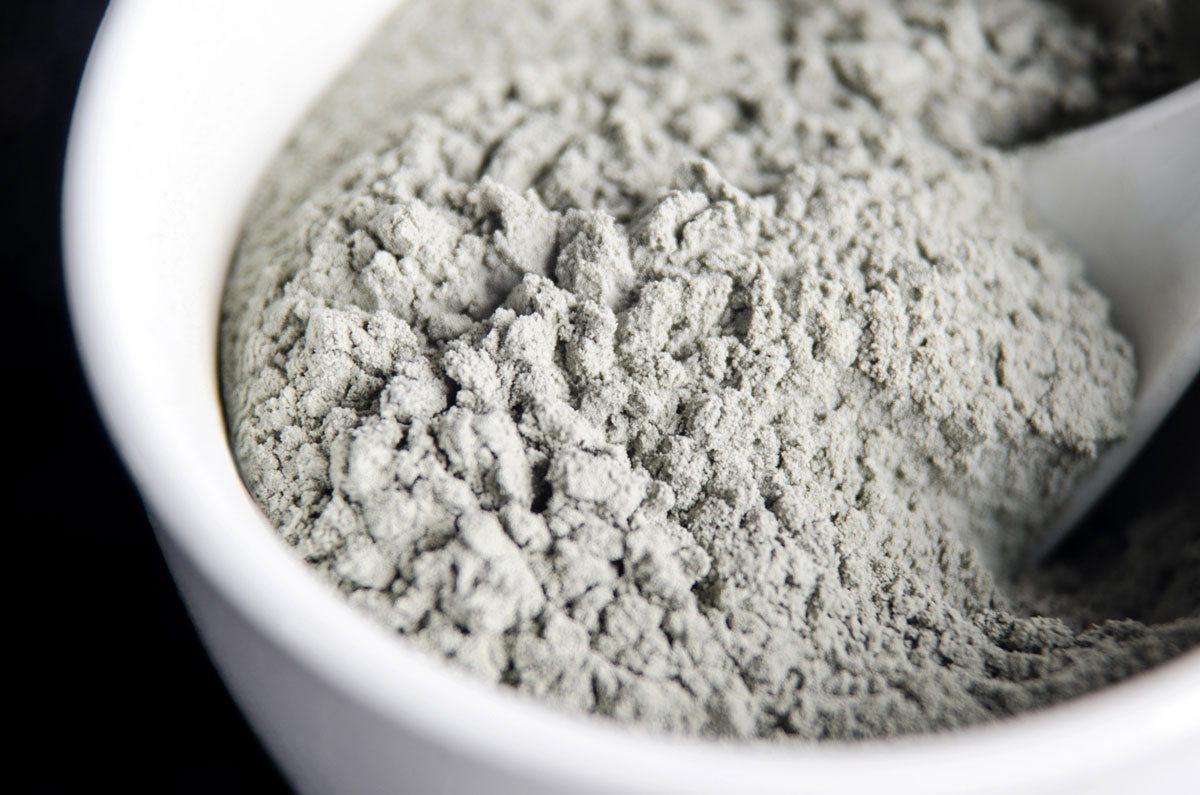
As parasites die, they release toxins. Binders like activated charcoal, chlorella, or bentonite clay help absorb and safely remove them.
I’ll be honest, I was pretty uninformed about parasites before this episode. I had no idea how many symptoms could be tied back to them or how deeply they can impact gut health, mental clarity, and even immune function.
If you’re dealing with unexplained health symptoms or just want to be proactive, I hope this episode has been helpful. If you’re curious about testing or herbs, be sure to talk with a practitioner who understands functional detox.
As homesteaders, we work so hard to build a healthy, sustainable life. But sometimes, the biggest obstacles to our wellness are the ones we can’t see.
Don’t let fear stop you from taking the next step. Start by learning, asking questions, and supporting your body in ways that align with how it was designed to function.
Common Parasite Misconceptions

The first misconception about parasites is that we don’t have them in the United States. We do!
Second is that, if you have a parasite, that you’ll know because you’ll drastically lose weight. This isn’t always the case! Dr. Torrie contracted a parasite and actually gained weight.
Third, that your symptoms will be severe. Having parasites does not always equate to crazy symptoms. Most often the symptoms are just brain fog, weight gain, joint pain, etc.
I didn’t realize that we always have parasites or that headaches could be attributed to parasitic overload.
Where to Find Dr. Torrie

- Find out more information on toxin testing or working with Meraki Wellness on Dr. Torrie’s Website
- Follow Dr. Torrie on Instagram and Facebook


